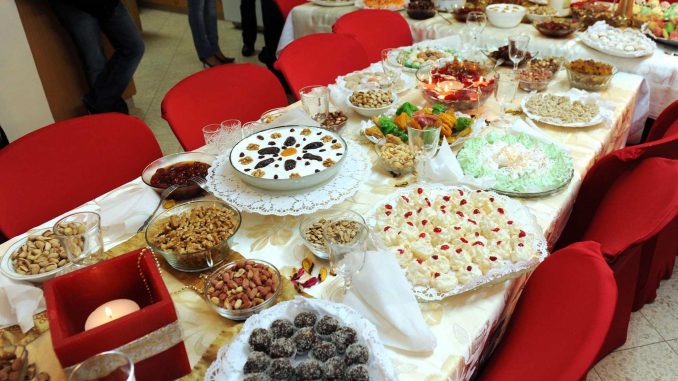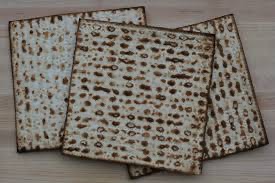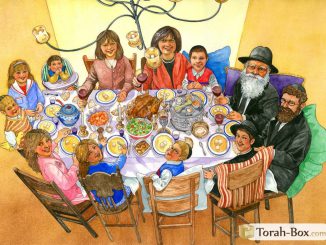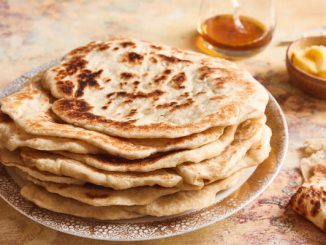
Celebrated on the last night of Pesach, Mimouna is a traditional Moroccan holiday which Moroccan Jews have been in the habit of celebrating for about three centuries, before taking it with them on their migrations around the world and preserving the customs and rituals that remind them of their homeland.
Although it relates to Jews from the Arab Maghreb and North Africa, this religious holiday has almost disappeared from some countries in the region, except for Moroccan Jews who continue to celebrate it, including those who have settled in Israel, to the extent that it has become a national holiday in the Jewish State and it is celebrated by its Prime Minister himself.
Mimouna is also a festival symbolizing the coexistence, tolerance and love that exists between Moroccan Jews and Muslims. On this occasion, Jewish families open their doors to their Muslim friends and neighbors. The latter prepare the menu for this blessed evening, including cakes and bread that the Jews have been deprived of throughout the eight days of Passa’h. They present these foods to their Jewish neighbors and wish them a happy end to Passover by saying, “Rejoice and be happy! »

On the occasion of Mimouna, Jewish and Muslim families prepare some special dishes, such as La mofletta, a Jewish pancake that is eaten with butter, honey or jam. Trid, donuts and Chebbakiya are also prepared. Muslim guests also bring with them many kinds of food such as ghee, butter, mint, yeast, flour, fish, whey and honey. This festival is celebrated to the rhythm of traditional and popular music and songs.
Historians disagree about the origin of “Mimouna”. Some believe that it is based on the Arabic word meaning “good omen”, while others claim that the term refers to the name of the famous Rabbi Mimoune ben Youssef, whose death anniversary coincides with this festival. Others, on the contrary, believe that the term “Mimouna” refers to “Mouna”, a cake which was famous in Andalusia and which the Jews brought back with them. Still others maintain that the term is derived from the Hebrew word “Imona,” which means “faith” and refers to the ingrained belief among Jews about the return of Christ on an April day. Others believe that the term is derived from the Hebrew word Mamoun, which means “money”. Thus, they believe that the night of Mimouna corresponds to the beginning of spring as well as the commercial year that the Jews wish it to be prosperous.
Because of the health emergency measures put in place to counter the spread of the Coronavirus, Moroccan Jews are forced to celebrate Mimouna away from their families, friends and neighbors.




Be the first to comment